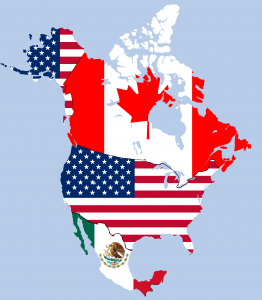The North American Free Trade Negotiations have turned into a blame game about which party is doing the most to damage the deal. Needless to say, little progress seems to have been made at the fifth round of negotiations that wrapped in Mexico City on Tuesday, November 21.
U.S. Trade Representative Robert Lighthizer is blaming Canada and Mexico for stalling the talks that gathered nearly 30 negotiating groups.
“While we have made progress on some of our efforts to modernize NAFTA, I remain concerned about the lack of headway,” he said in a statement released on the conclusion of the negotiations. “Thus far, we have seen no evidence that Canada or Mexico are willing to seriously engage on provisions that will lead to a rebalanced agreement. Absent rebalancing, we will not reach a satisfactory result.” The statement smacks of President Trump’s earlier promise to pull the U.S. from NAFTA if the parties couldn’t reach a deal that would be beneficial domestically.
 |
Mexico is blaming the U.S. for the current gloom over NAFTA, and the country’s Economy Minister Ildefonso Guajardo has said the government will address Lighthizer’s concerns by boosting commerce rather than restricting it.
Canada is also blaming the U.S. for the fumbled forward movement on talks, and the country’s Foreign Affairs Minister Chrystia Freeland said Canada is hoping for the best, though prepared for the worst. “There are some areas where more extreme proposals have been put forward, and these are proposals that we simply cannot agree to,” Freeland said to reporters on CBC News Canada following the talks. She added that the U.S. stance on contentious issues tying up the talks has largely remained unchanged.”
Among the problems appears to be the United States pushing to raise the requirement under the rules of origin for American content in cars to 85 percent from its current 62.5 percent – which Canada and Mexico have so far rejected.
Freeland said, for now, Canada is after a “fact-based approach” to clarify some of these proposals, in particular with regard to the rules of origin, as she said she’s understood from the auto sector that some of the proposals would not only be harmful for Canada, but also for the U.S.
Click here for full article on Banderas News
Source: Banderas News


